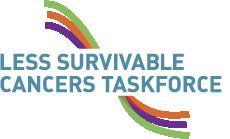Last week, there was a launch at Westminster of the Less Survivable Cancers Taskforce to draw the attention of the Government, NHS, researchers, and indeed everyone else about the disparity in outcomes between those cancers where people tend to live much longer afterwards (eg breast and prostate cancer) compared with those with an average 5 year survival rate of less than 20%. Cancers in this category are pancreatic, oesophageal, stomach, brain, lung and kidney.
In practice there are very good outcomes for oesophageal cancer provided that it is diagnosed in its very early stages, and averages are meaningless when it comes to an individual patient, but early diagnosis is one of the main areas of concern to the taskforce. Bob McQueen told his story of Barrett's Oesophagus developing into adenocarcinoma and avoiding an oesophagectomy through radio frequency ablation. The assembled company included Steve Brine, the Health Minister, and John Baron MP, the chairman of the All Party Parliamentary Group on Cancer. So oesophageal cancer was well represented. The OPA, along with a number of other charities, are supporters of the Action Against Heartburn campaign.
Other calls to action include more awareness about potential cancer symptoms, treating these cancers earlier, involvement in research, better funding for research and proper Government targets to drive improvements against these cancers.
The campaign is aimed not to take away anything from those diagnosed with other cancers, but to try and direct attention to the cancers where the numbers of deaths are likely to be highest.
There is to be another Public Health England 'Be Clear on Cancer' campaign involving TV and radio adverts in the Midlands region in the latter half of September and October this year. It will focus on abdominal symptoms - not so specific as we would like from an oesophageal cancer perspective - but we are hoping that the campaign will be successful, and that some of those going to see their doctor because of the campaign will be people who will have their oesophageal cancer diagnosed early enough to make a difference.
One of the pleas made by John Baron was for anybody who has influence with local Clinical Commissioning Groups to pester them to improve the one year survival rate for these and other cancers, as he believes that this statistic is heavily associated with early diagnosis.
A generation ago, the outcomes for some cancers, with the notable exception of pancreatic cancer, was much worse than it is today. I suspect that progress has always been hard work and a difficult thing to achieve medically, but we do hope that initiatives like this will support the heroic efforts of the doctors and nurses treating us all with these cancers and make a real difference into the future.
